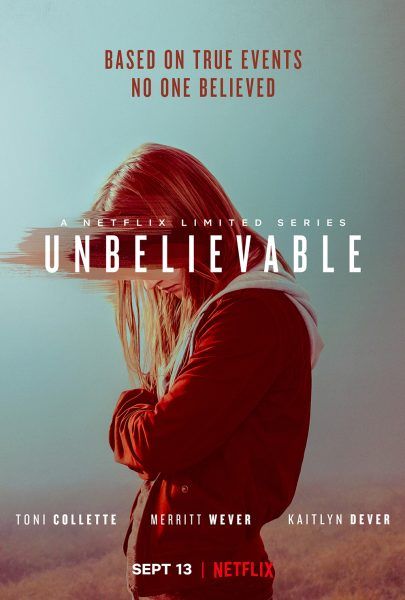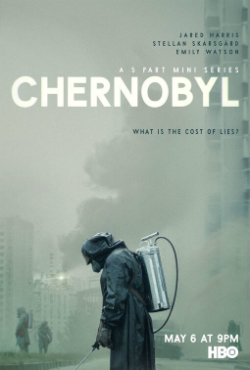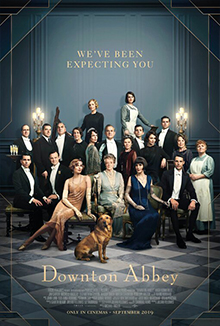A year ago, I learned that Greta Gerwig had written and directed an adaptation of
Little Women and it would be released on Christmas Day 2019. Since that announcement, this movie is what I have been most looking forward to all year. Little Women is one of my most cherished novels. The 1994 film (also a Christmas Day release) is a highlight of my childhood and I have watched it countless times. I have been in love with the character of Jo March my entire life, and I thought no one would supplant Winona Ryder as Jo in my imagination. But it has now happened, because Saoirse Ronan (and really, Greta Gerwig, who is the true Jo of this movie) has stolen my heart. The following review lists out everything I so deeply loved about this film and as such is brimming with spoilers. Please watch this movie first and read this review later. You deserve to treat yourself to this cinematic feast. However, if you do want a teaser, I highly recommend this
Vanity Fair video where Gerwig and some of the cast dissect a scene in the movie. It will immediately tell you everything you need to know about how much love and artistry went into making this film.
1. The casting. Every character in this film has been impeccably cast: shout out to casting directors Kathy Driscoll and Francine Maisler. Yes, Saoirse Ronan as Jo is perfect, with her angular face and wild carefree attitude that is so at odds with the women of her day. But Emma Watson is also the perfect Meg, the beauty of the family who is gentle but strong, tempted by riches but wise enough to know that love is more important. Eliza Scanlen is a wondrous Beth, demonstrating her crippling shyness but also the efforts she takes to acknowledge others' kindnesses and give of herself in myriad ways until she no longer can. And Florence Pugh is a delight as Amy, the most irritating March sister. While it's definitely a hard ask to play 12-year old Amy in the childhood scenes, Pugh does a creditable job, highlighting what a brat Amy can be, but helping us to understand how she fits into this family and how her mind had been molded to think that her only escape from her existence will be to marry well. Then of course there's Laura Dern as the indomitable Marmee, the woman who is tirelessly raising these little women while her husband is off to war and does it with a cheerful composure that masks her own frustration and fatigue. And there's Meryl Streep as the cantankerous Aunt March, a horribly plain-speaking woman who wants the March sisters to do well but has very little hope that they will. We also get the wonderful Jayne Houdyshell as the hardworking Hannah, the Marches' maid who ensures they are fed and clothed and keeps things moving while the girls are off on their adventures. Moving from the women, we have Timothee Chalamet as Laurie, who is charming and always a treat opposite Saoirse Ronan: that casting helps as the two are such great friends in real life and it shows on screen. But he suffers from the opposite problem as Florence Pugh: while he's lovely as young Laurie, the older, more careworn adult is a harder thing to pull off and I'm not sure that he succeeds. For now, Christian Bale from the 1994 film will still be my Laurie. Louis Garrell as Professor Bhaer is also an interesting choice, because he's French, not German, which is a departure from the novel. But given how Gerwig treats that particular plot point (more on that later), it makes sense she wouldn't be too fussed about his nationality. We also have Chris Cooper as Laurie's grandfather, and this movie really amps up what a tender-hearted friend and surrogate father figure he becomes to the March women. Which brings us to the only casting decision that I found bizarre: Bob Odenkirk as Mr. March. To me, Odenkirk will always be Saul Goodman or some sort of comic relief, and I can't take him seriously as the patriarch of the March household. But he is barely in the film, so it doesn't really matter.
2. The script. This movie captures everything I love about the novel. Every vignette, every line of dialogue, every plot point. They're all in there. But rather than following the straight timeline as the girls grow into women, Gerwig starts with the adult Jo marching into a New York editor's office to sell a sensational story, and then flashes back and forth between childhood and adulthood. This lends novelty to the piece since all the prior film adaptations have never messed with the novel's structure. But it also helps to develop these characters and remind us of what events in their childhood led to the decisions they made as adults. Meg's marriage to John Brooke is so much more compelling when immediately contrasted with her girlish fantasies of high society. Amy's desire for a rich husband is so much more nuanced when you see her as a young girl being taught by Aunt March that she is her family's only hope to rescue them from poverty. And most devastatingly of all, we contrast the first time Beth falls ill from scarlet fever and recovers to the second time when she dies, and it broke my heart. Beth's death is always sad, but told in this fashion, it is utterly devastating. Of note, the book and movies always seemed to focus on Jo's sadness when her favorite sister dies, but in this movie, it was Marmee's reaction that destroyed me. Massive kudos to Gerwig and editor Nick Houy for successfully executing all these time jumps and ensuring the story remains intact. As detailed in the Vanity Fair video, credit is also due to cinematographer Yorick Le Saux, as the childhood scenes are suffused with a "golden glow," which also helps to delineate timelines.
3. The feminism. As faithful as the script is to the novel, Gerwig throws in some curveballs and amps up the feminist manifesto. This is all in keeping with author Louisa May Alcott, a woman who never married and said she preferred to be "a free spinster and paddle her own canoe." Alcott was always my role model and I loved that quote, so nothing delighted me more than when Jo actually says it in this movie when she's trying to convince Meg not to get married. What is so important, however, is that this film doesn't sideline the ambitions of any of the other women and say that Jo is the only one who's living a proper woman's life. When Jo is being petulant and saying Meg shouldn't feel obligated to get married, Meg gently explains to her that, "Just because my dreams are different from yours, it doesn't mean they're unimportant." There are plenty of scenes in the movie where Amy grapples with how marriage is an "economic proposition" and Jo is railing against the unfairness of being a woman and we are reminded repeatedly of how few options these women had to lead independent lives. But the moral of the story is never that everyone should be like Jo and forge ahead with a brilliant literary career and no husband. Instead, the feminist moral is that all women should have the freedom to pursue their own dreams. They should be allowed to dream, and accomplish those dreams, without judgment from society or their own sister. Ultimately, all four sisters have very different fates, but there is never any doubt that they followed their hearts' desire, and that is what makes Little Women such a feminist masterpiece. Of course, the one quibble is Jo's marriage to Professor Bhaer, a twist that Alcott was forced to include to make the novel more commercially viable. I won't spoil what Gerwig does with that ending in this movie, but let's just say that she lends her true auteur's stamp to that particular plot point. Some diehard fans of the book won't like it, but Louisa May Alcott would be proud.
4. The costumes. The Vanity Fair video gave me a primer before the movie but I would have been captivated by these costumes even if I had no inkling of the effort that costume designer, Jacqueline Durran, put into them. Jo is always clad in something a little masculine and comfortable, while the other women are always a little more constrained. In one scene, Jo is walking arm-in-arm with Amy and Meg, and it is so bracing to see her uncorseted with no hoops in her skirt, unencumbered by all that burdensome femininity, embodying the tomboy attitude that made her such a heroine to me as a child. I kept noticing the color palette, with Jo wearing pops of red, Meg usually in something green, Beth in pinks and browns, and Amy in that gorgeous light blue that captured all of her desire to be refined and elegant. Early on in the movie, there is a scene in a Parisian park that genuinely looks like something out of a Monet painting and it quite took my breath away. While the focus is on Amy, Laurie, and Aunt March, I couldn't help gazing at the extras carrying parasols and furbellowed gowns and marvelling at how picturesque everything looked. It was a short scene, but every element was as perfect as if the entire movie was to be shot in that park, and it showcases the art that went into every frame of this film.
5. The humanity. All of the above elements of the movie work together beautifully to create the world and develop these magnificent characters. As I watched the film, I was incandescently happy, because even though I knew every story element and who these women were, it somehow felt like I was seeing them through fresh eyes. The constant flashbacks meant that my emotions were always seesawing, which encapsulates the human condition; there are always ups and downs and these women go through events that can seem like utmost tragedy, only to recover the next day and have a laugh about it. Gerwig aptly captures the relationships between the sisters and gives all four women their due. She shows how they fight - not like petulant girls, but like proper sisters who want to tear each others' hair out when they have been wronged (paritcularly in the case of Jo and Amy). All of this leads to you feeling a bit emotionally on edge throughout the movie. And then we get to Jo's monologue after Beth's death, a moment when she is feeling unsettled, unsure of what her next steps are going to be, sad and purposeless. She first delivers a speech that is actually from another Alcott novel, Rose in Bloom, but which feels very apt for Jo March. It's a speech that's in the trailer, so you may have already heard it, but it is a screed about how women are full human beings, capable of so much, but are always just told that love is all they're fit for. On its own, it's a powerful speech. But what breaks your heart is what follows. Because Jo now confides to her mother that if Laurie were to propose to her again, she would probably say yes. And when Marmee asks, "Do you love him?" she can only reply, "I want to be loved." And when Marmee wisely declares, "that's not the same thing," Jo declares, "I'm so lonely." It is the most fundamental declaration of the pain of being human. We are capable of so much, and can do so many things, but sometimes the price of pursuing our dreams is that we are so incredibly lonely. It is something I have declared many times, and to see my heroine, my idol, espouse the same sentiment on screen, made me sob buckets. I had to re-read that chapter of the book, and realized that while that exchange does take place in the novel, Gerwig has wisely re-worked it to give it a more fiery intensity and pathos. As far as I'm concerned, she deserves an Oscar for Best Adapted Screenplay for that one scene alone.
So that's
Little Women. I went into this movie with insurmountable expectations, and somehow those expectations were blown out of the water. It is told with so much warmth, humor, brilliance, and insight, and it is as close to perfect as any movie could be. It is a cinematic masterpiece that I plan on rewatching multiple times and luxuriating in for decades to come.
 I’ll admit, I watched Richard Jewell out of a sense of obligation rather than any genuine interest. It has gotten nominated for awards and received some critical recognition, but I figured this was for the Clint Eastwood fanboys, much like everyone going wild for Scorsese’s The Irishman. However, turns out this movie is actually quite a treat, thanks to its star, Paul Walter Hauser.
I’ll admit, I watched Richard Jewell out of a sense of obligation rather than any genuine interest. It has gotten nominated for awards and received some critical recognition, but I figured this was for the Clint Eastwood fanboys, much like everyone going wild for Scorsese’s The Irishman. However, turns out this movie is actually quite a treat, thanks to its star, Paul Walter Hauser..jpeg)
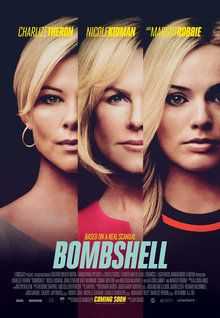



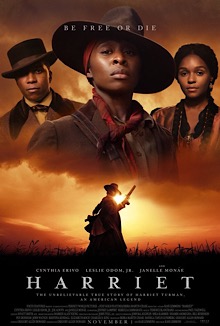





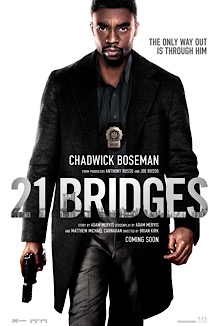
.png)
.png)

_poster.jpg)
.png)

_poster.jpg)
